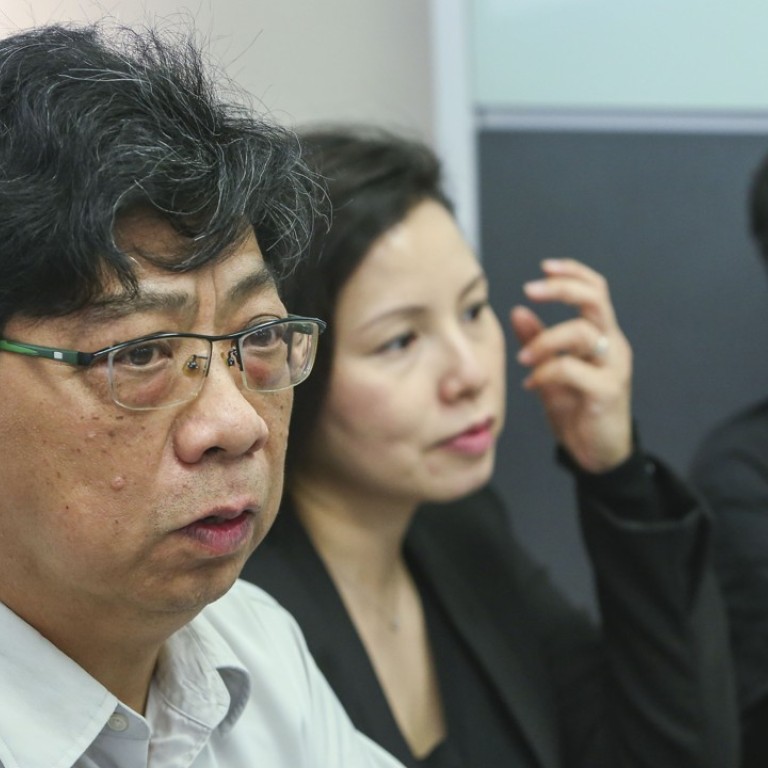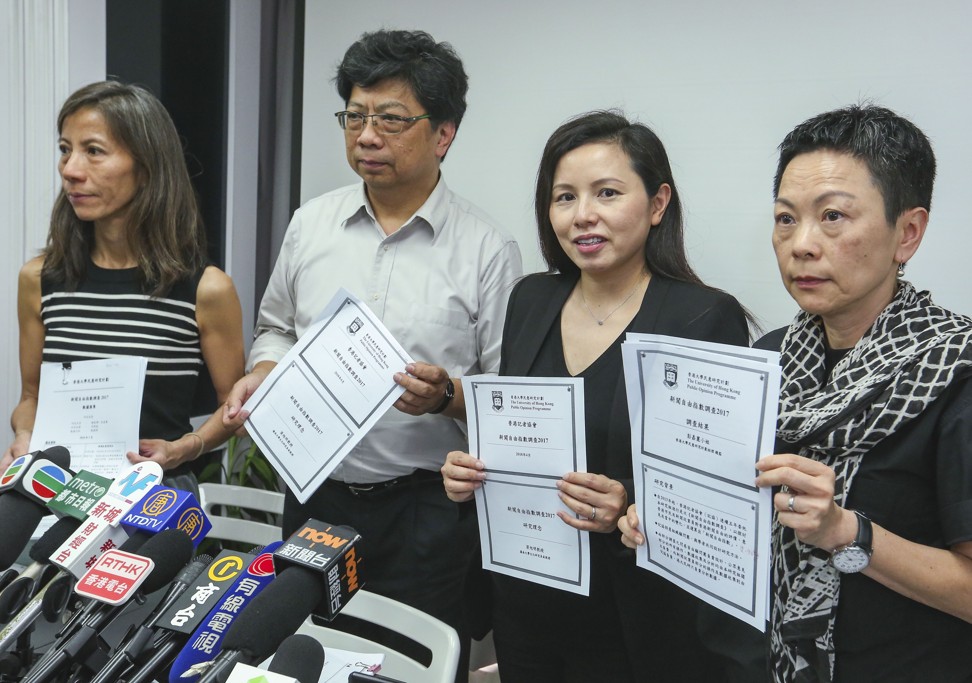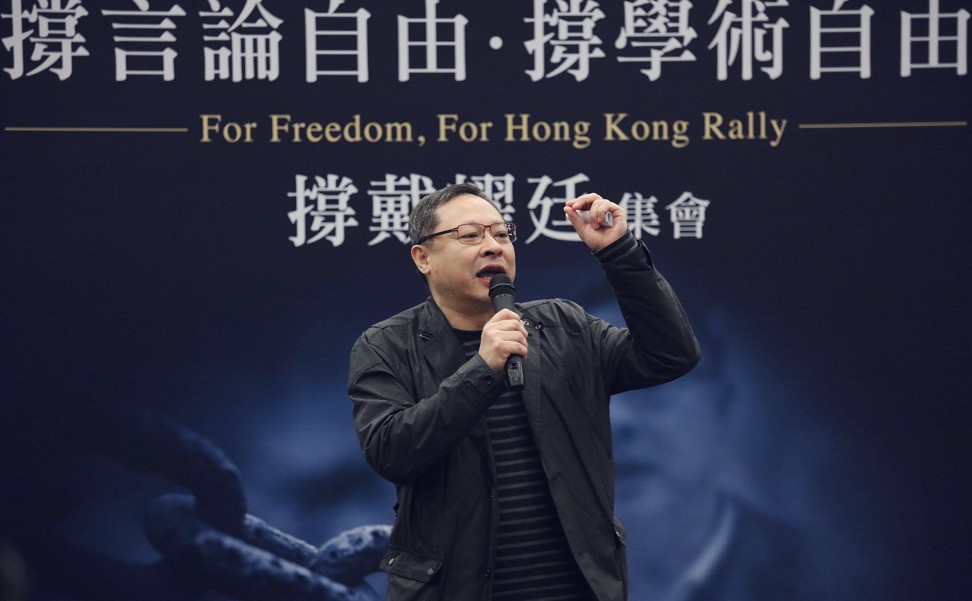
Public fears pressure from Beijing is leading to end of press freedom in Hong Kong
Annual Press Freedom Index puts city at lowest level since survey started in 2013
Pressure from Beijing is a major contributing factor in public confidence in the freedom of Hong Kong press dropping to an all-time low, an annual survey has revealed.
The Press Freedom Index, which measures public feeling on the subject, dropped 0.9 of a point to 47.1 out of 100, its lowest level since the survey started in 2013.
Hong Kong’s journalists, who were polled separately, were slightly more optimistic compared with last year, their index rising 0.9 to 40.3. This was put down to a number of factors, including the reduction of violence against journalists.

However, the Hong Kong Journalists Association said 70 per cent of those polled believed press freedom was worse compared with a year ago.
The index measures a group’s perception of media freedom in society. The survey conducted by the public opinion programme of the University of Hong Kong polled 1,033 members of the public and 520 journalists.
“The room for press freedom has been shrinking,” Chris Yeung Kin-hing, Journalists Association chairman, said.
“In the public eye …the ‘Hong Kong system’ is shrinking and that includes the most important things, such as freedom of expression and the press.”
Freedom score for Hong Kong hits seven-year low as Beijing’s ‘ever greater influence’ cited
Those polled in the public survey believed it was more common for local news media to have doubts and hesitation in criticising Beijing, with a rating of 3.8 out of 10. The lower the mark, the more common the belief is. In 2016, the rating was 4.1
Half of the journalists surveyed listed the central government as one of the three most important factors affecting their assessment of press freedom in the city, growing from 38 per cent last year.
How Hong Kong’s media law and press freedom have fallen behind, from an ex-HKU professor who taught subject for 17 years
In strongly worded statements on the subject, both local and central governments accused Tai of advocating separatism at an anti-Chinese Communist Party seminar in Taiwan last month, when he suggested Hong Kong could “consider becoming an independent state” some day in a “democratic China”.
If the survey had been held after Tai’s comments the rating on press freedom is likely to have been lower still.
“Clearly it [the rating] would have only been worse,” Yeung said.
The Journalists Association chairman argued that with more red lines being drawn by Beijing, more related topics such as independence would be viewed as sensitive, or even become forbidden areas in media reports.

The Tai controversy continued to grow on Wednesday, as the State Council’s Taiwan Affairs Office warned the academic was jeopardising national sovereignty and territorial integrity.
The office’s spokesman Ma Xiaoguang, speaking at regular press conference, accused Tai of trying to unite pro-independence forces in Hong Kong with those in Taiwan. Such attempts will fail because they were not supported by the people, Ma stressed.
Meanwhile, Hong Kong Chief Executive Carrie Lam Cheng Yuet-ngor appeared to be playing down the controversy in the Legislative Council on Wednesday morning.
Asked by opposition lawmaker Jeremy Tam Man-ho why she singled out Tai in issuing a condemnation statement, Lam said: “I think the people’s eyes are discerning”.
Without naming Tai, she said “freedom of speech or academic freedom” was not involved in the matter.
“Such remarks have stirred great controversy in Hong Kong … which was caused neither by me nor the government,” Lam said.

